Mobile apps are the new face of connecting with customers as there are around 2.71 billion smartphones used globally. Mobile app development companies are trying to latch onto the opportunity to reach customers directly. The wider the reach of the mobile app, the more its advertisement revenue would be. But, a major threat of cloned mobile apps is looming around these companies. Many app doppelgangers look and function in the same manner as the original app hampering its revenue and brand negatively.
Clone – A Preamble
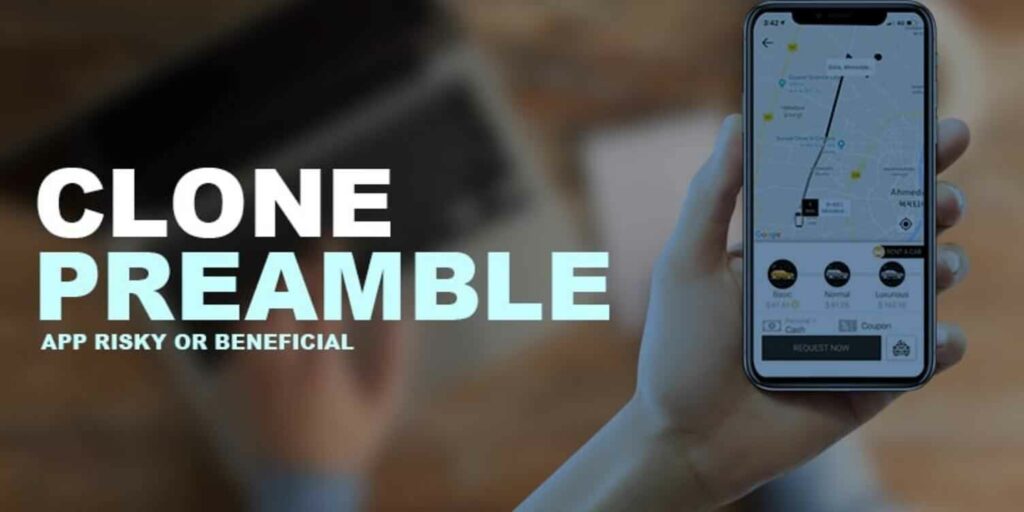
Let us try to understand the meaning of clone apps first. The scope of cloning is not limited to aesthetics only, but it must cover the code also. Two applications can be considered a clone of each other when they have the same code, but the companies owning them are different. Cloning is different from the reusing of code because some mobile apps release their API libraries open for access to anybody. If an app has been created by using the publicly available third-party API, it cannot be considered cloning. Similarly, multiple versions of the same app cannot be termed clones as their parent company would be the same in this case.
Clone Detection Approaches

So, how do we detect clone apps? A simple approach is to check the private key of the owner of the app as every mobile app has to be prima facie signed by the owner before it is uploaded to the Play Store. So, the ownership of two similar apps can be verified by checking the key of the apps. If the keys are different, then there are chances that the apps might be clones. This situation is pretty common for a mobile app development company in India as companies here are fierce competitors.
Let us see what the different ways of detecting clone apps are.
Feature-Based Clone Detection
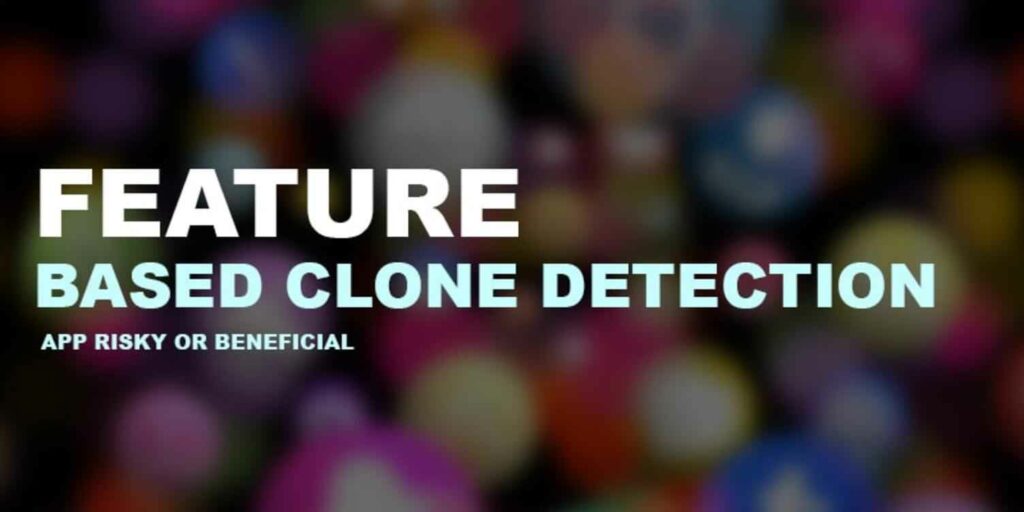
The feature-based clone detection approach analyzes the program to extract the pool of features provided by the two apps. The extracted features are compared to detect the amount of plagiarism in the code with the help of certain tools available online. The selected features can differ significantly regarding variables, class names, number of classes, loops, libraries, and other programming constructs. This approach is not fully-proof as it ignores the structural similarities of the programs. These approaches have a low clone detection ratio and are highly prone to be fooled.
Structure-Based Clone Detection

The structure-based clone detection approach converts the programs into multiple tokens generating a stream of the same. These token streams are then compared to detect smart plagiarism wherein the constructs that can be modified with ease such as whitespace characters, variables, comments, etc. are ignored. This approach is more robust than the previous approach in detecting structure plagiarism as it can detect similar or nearly similar code. However, the code modifications cannot be detected properly as the streams do not have semantic knowledge.
PDG-Based Clone Detection
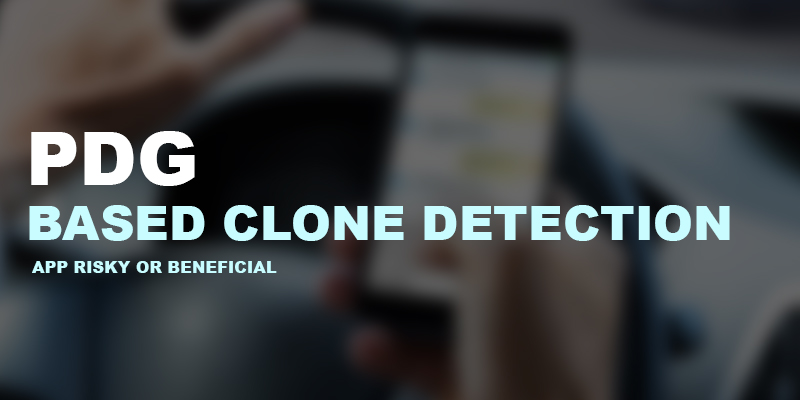
PDG stands for Program Dependence Graph. It represents the methods in the program via a dependency graph highlighting data as well as control dependencies. The edge showing data dependencies is generally between two variables, which are dependent on one another. For example, a pointer variable v2 pointing to v1 is dependent on v1. On the other hand, a control dependency edge between two statements exists, if the execution of a statement depends on the truth value of another statement. This phenomenon is difficult to hide and is often ignored by the cloners. This would be similar to the original app. So, this is the most robust technique to detect cloning.
App Cloning vs. Innovation: Striking a Delicate Balance
In the ever-evolving landscape of app development, the distinction between app cloning and innovation is a topic of perpetual debate and consideration. Understanding the difference between the two is pivotal in deciding the impact of each on the tech industry and society at large.
App Clone Meaning:
App cloning essentially refers to the practice of developing a new application that closely mimics the features, functionalities, and even the user interface of an existing, often successful, app. In this, the replica of an app is done, which is the reason why it raises ethical and legal concerns, but in reality, it is not illegal.
Innovation Defined:
As the name suggests, innovation means to innovate something that represents the creative and original idea, and development of new concepts and technologies.. Innovative apps introduce novel solutions, redefine user experiences, and contribute to the progress of the tech ecosystem.
Is Clone App Safe?:
The safety of clone apps depends on various factors, including their source and intended use. While some clone apps may offer convenience and familiarity, others might pose security risks and data privacy concerns which raises the question of whether clone apps are safe. Users should exercise caution and conduct due diligence before engaging with clone apps.
Navigating the Fine Line:
The dichotomy between app cloning and innovation can be complex. On one hand, cloning can expedite development, capitalizing on proven business models and features. It offers accessibility to markets and a competitive edge in terms of speed to market. However, the downside lies in the potential legal and ethical consequences, such as copyright infringement, brand damage, and undermining genuine innovation.
Impact on Innovation:
App cloning, when pursued without ethical considerations, can stifle genuine innovation. Developers may choose the safer path of cloning successful apps rather than venturing into uncharted territories, resulting in a tech landscape saturated with imitations rather than groundbreaking innovations.
Balancing Act:
The tech industry must strike a balance between competition and ethical practices. While app cloning can catalyze competition, it should be governed by ethical guidelines that protect intellectual property rights, promote fair competition, and encourage responsible innovation.
App cloning and innovation are two contrasting approaches to app development. While certain advantages of cloning can be understood in terms of rapid development and market access, it must be approached with ethical considerations. Genuine innovation remains the driving force behind progress in the tech industry, and striking a balance between these two approaches is crucial for maintaining a healthy and dynamic app development ecosystem.
Top Potential Threats of Cloning an App

The cloned apps pose several threats to the original app ranging from benign to severe ones. Benign cloning is harmless, where the sole purpose is to provide an application to the audience, probably in a different market or to an altogether different niche, not included by the original app owner. Some clones do change the advertising libraries, trying to gain monetary benefits intended for the original app. An example of this is the clone of the download manager, which tricks the user into downloading some other app instead of the intended one. The objective can be either adware or malware for stealing sensitive information. There are other major threats listed below.
Threat #1: Quality Assurance Dilemma
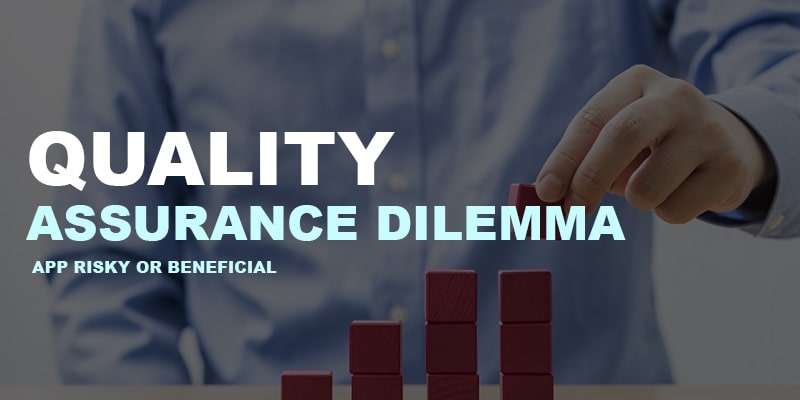
Although the businesses on which clone scripts are based are successful ones, there is no guarantee that the code is of superior quality. The cloned app owner is reliant on the white-label app for quality. On top of that, one cannot modify the code. The quality of the app is totally out of your control. Another issue that can crop up due to inferior quality is that the app stores reject the apps that are of low quality. This could incur huge losses to the app owner.
Threat #2: Minimal Customization Opportunities
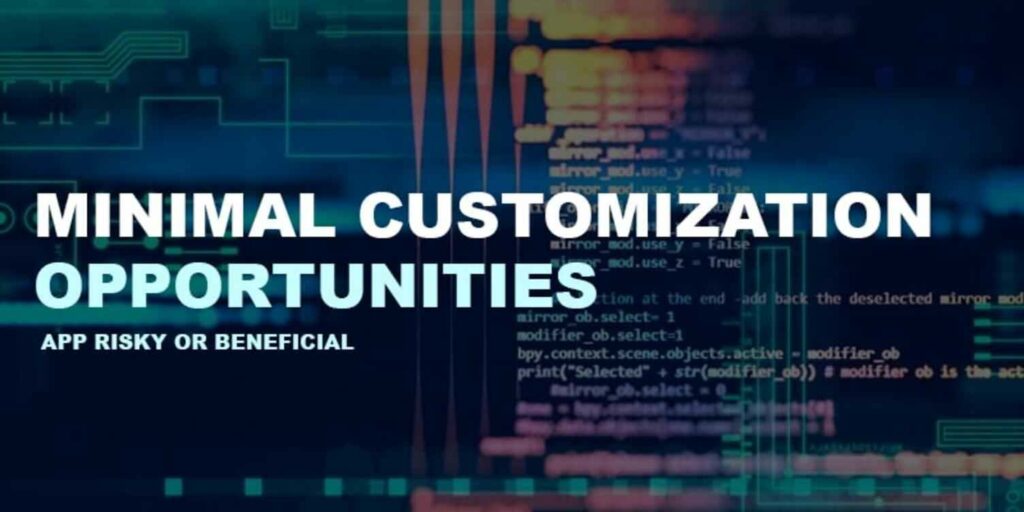
The clone scripts available for adoption generally have basic functionalities only. If you are planning big it might disappoint you. If you want to include advanced payment options like digital wallets or advanced geospatial features for location tracking, these apps might not be useful for you. In such a case, be sure to check the available features of the app before deciding on the adoption.
Threat #3: Growth Dilemma
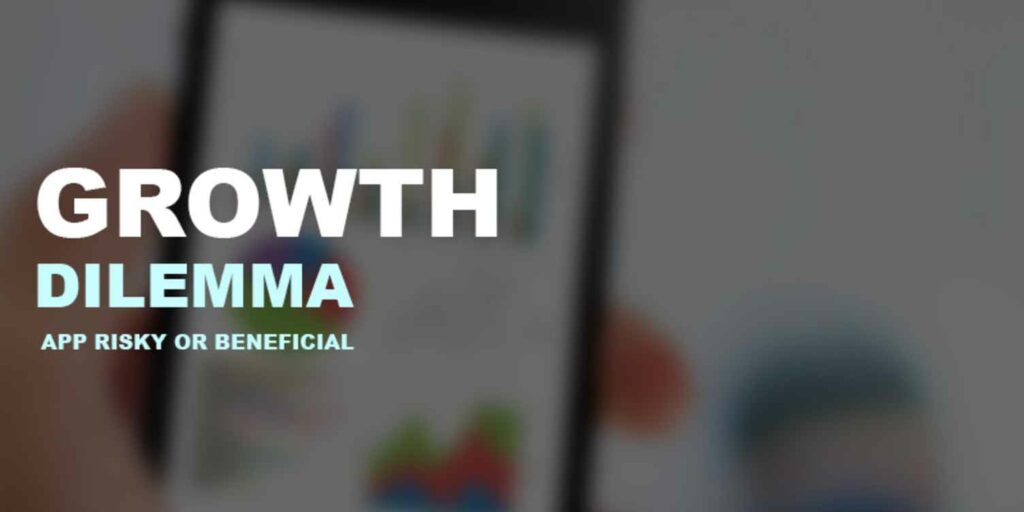
The clone scripts are restricted to a reasonable user base. However, one cannot be sure about the growth rate of any business. In the case of the exponential growth of the business, one might not be able to alter the app architecture in a cloned app. A cloned app might not be able to handle the increased load, and the app might crash. In other terms, there might be issues with scalability in case you choose to adopt a cloned script.
How to Make an Informed Decision
Before using a readily available clone application, some things need to be taken in mind for which steps you have to take.
On-Demand App Ideas For Startup
- Identify Your Requirements:
Clearly define your project’s requirements and objectives. Understand what features are essential and what can be customized.- Research Providers:
For the best quality solutions seek any reputable app providers who have a track record for the same. Read reviews, check their portfolio, and contact them to discuss your project.- Legal and Copyright Considerations:
Before using any cloning app ensure that it is free from any copyright or trademark. Seek legal advice if necessary.- Assess Customization Options:
To meet your unique needs, you have to evaluate the level of customization allowed by your clone app.- Security and Privacy:
Pay close attention to security and privacy features. Ensure that the cloned app complies with data protection regulations and can protect user data effectively.- Cost Analysis:
Calculate the total cost of using a cloned app, including customization, licensing fees, and ongoing maintenance, and then compare this cost to the potential benefits and revenue.- User Experience:
Prioritize the user experience. A seamless and enjoyable user experience can make or break your app’s success.- Technical Support:
Inquire about the level of technical support and updates provided by the clone app provider. Make sure they have a plan for addressing issues and security vulnerabilities.- Plan for Future Growth:
If you want to use it for a long time, then you need to consider how the clone app will fit into your strategy. Have a plan for scaling up or transitioning to a custom solution if necessary
Potential Benefits of Cloning an App

Cloning an app may not always be harmful. There are certain benefits associated with it. First of all, let us try to understand what is allowed and what is not allowed legally in cloning an app. Cloning is perfectly legal unless you violate the Intellectual Property Rights (IPR) viz. trademark, copyright, or patent of the organization owning the app. Cloning doesn’t necessarily mean replicating the entire app. However, the ideation part cloned from multiple apps can be used to draft the idea of a new app.
Let us go through the potential benefits of mobile app cloning
Benefit #1: Affordability

A mobile app built from scratch needs a lot of time and effort. A better alternative is to opt for a white-labeled clone app. These are the apps whose API is available publically at a cost. Studies have proved that developing a mobile app by using a clone saves a lot of development time, and the cost of developing the app is approximately halved. Moreover, design and research costs are also saved. On top of that, replication ensures saving pennies for branding and advertising as well.
Top App Ideas For Startups To Launch
Benefit #2: Minimizes Development Time
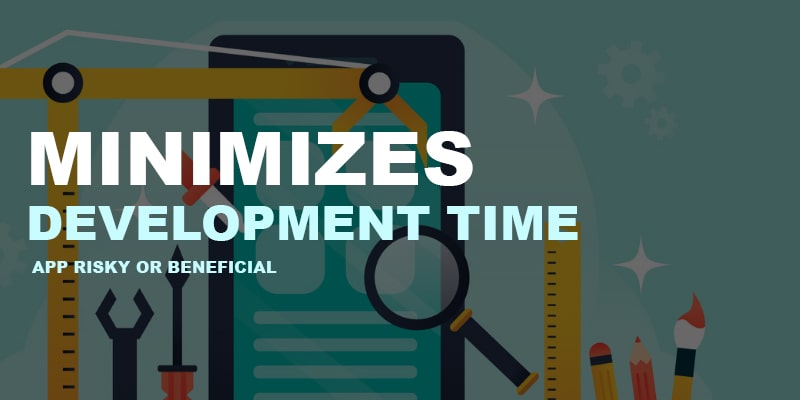
The mobile app developed from reliable clone scripts is a replica of a proven interface. Therefore, the designing of the user interface and aesthetics of the app are already taken care of, saving a lot of designing time. Moreover, the major features are already incorporated in the code, which again banks the development time. This means that one can launch a new mobile app based on these cloned apps within no time. Moreover, these solutions are pre-approved, so no permission is required to launch the app on iOS or Android platforms.
Benefit #3: Increased Chances of Success
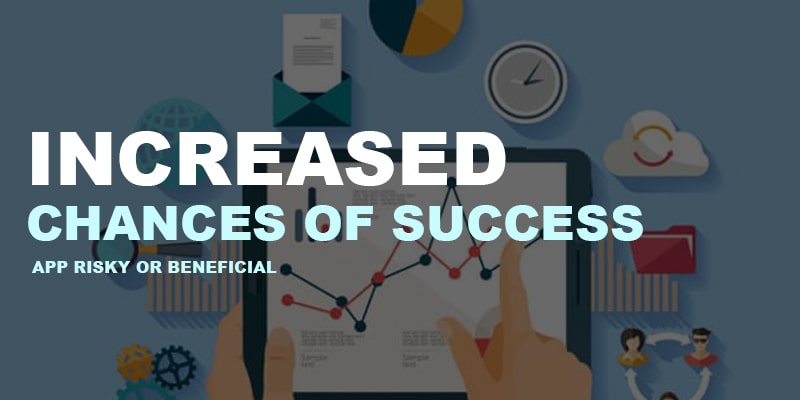
The clone scripts are tried and tested on several platforms earlier; they ensure high-quality bug-free code. Another thing to consider here is that the clone scripts are publically available only if the corresponding business is a highly successful one. This makes sure that a certain level of awareness regarding the business model is already there. This heightens the chances of your app getting succeeded.
Benefit #4: Maintenance Services
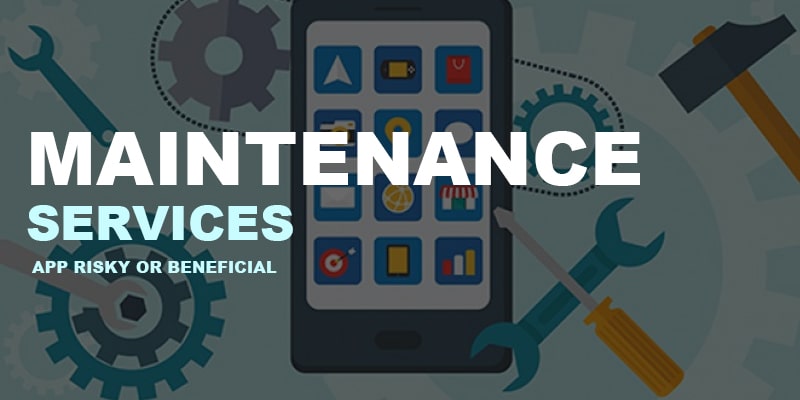
The app development companies providing clone scripts often provide the client apps using their APIs with services like support, launch, maintenance, etc. These support and maintenance services come in pretty handy when the cloned app is launched. The app is checked for the correct functioning of the app, and necessary changes are made in the code. These services come as a breather for the entrepreneurs relying heavily on the success of the app.
Benefit 5 Can be used for legitimate purpose:
While app cloning is often viewed negatively because of the issue of intellectual property rights in some cases, it serves a legitimate purpose. Cloning can provide users with access to discontinued apps, offer alternatives in the absence of official versions, or create interoperable solutions that enhance user experience. Regulatory measures should, therefore, consider these nuances when addressing the issue.
1. Regulatory Measures and Intellectual Property Protection in the World of App Cloning
In the age of digital innovation and app proliferation, regulatory measures and intellectual property protection have become pivotal in the realm of app cloning. Cloning applications, especially without proper authorization, can raise significant legal and ethical concerns.
2. Clone Application Landscape:
Whether it is app clone iOS or Android applications, the prevalence of it is increasing which aims to replicate the functionalities and often the interface of successful apps, allowing users to access similar services without the need for the original application. While some may see advantages in cloning, such as offering convenience or access to otherwise unavailable features, these benefits often come at a price.
3. Intellectual Property Protection:
Protecting intellectual property rights is central to addressing the challenges posed by app cloning. App developers have to invest time, effort, and resources to create unique and innovative solutions. Copyright, trademark, and patent laws play a crucial role in safeguarding their creations. Unauthorized cloning can infringe upon these rights, leading to legal disputes and reputational damage.
4. Regulatory Measures:
To combat app cloning, various regulatory measures have been introduced globally. These measures seek to strike a balance between encouraging healthy competition and preventing intellectual property violations. For instance, some jurisdictions have implemented strict copyright laws that explicitly prohibit the cloning of applications without permission. Additionally, app marketplaces like Google Play Store and Apple App Store have policies in place to identify and remove clone applications.
5. Ethical Considerations:
Beyond legal measures, ethical considerations are vital. Everyone who is using cloning including developers, users, and the industry needs to respect ethical considerations Ethical app cloning should be guided by principles of fair competition, transparency, and consent.
Mobile Application Security
Concluding Words

Mobile app development companies should be alert to the menace of clone apps, as this can present severe threats aforesaid. Every mobile app development company in India is taking this threat seriously as there are so many clone apps in the Indian market just to defame the parent company of the original app. The clone detection techniques mentioned above make life easier for app development companies as the trust of users once lost is difficult to regain. To conclude, there are benefits as well as threats associated with the concept of app cloning. The businesses might weigh the pros and cons before making the final call.
FAQs
Can an app be cloned?
Yes, an app can be cloned. The cloned app means an exact copy of an app that already existed. Now even the favorite apps get cloned. The cloned app will look the same as the original app, but the features may differ from the original one.
What happens if you clone an app?
If you clone an app, you won’t get any updates from the App Store as they only exist on your phone. Because cloned apps are new apps and the icon of that app can’t be recognized by the clone app. You also don’t need to keep the app Cloner installed because it can work without it. However, it might not support Some apps.



